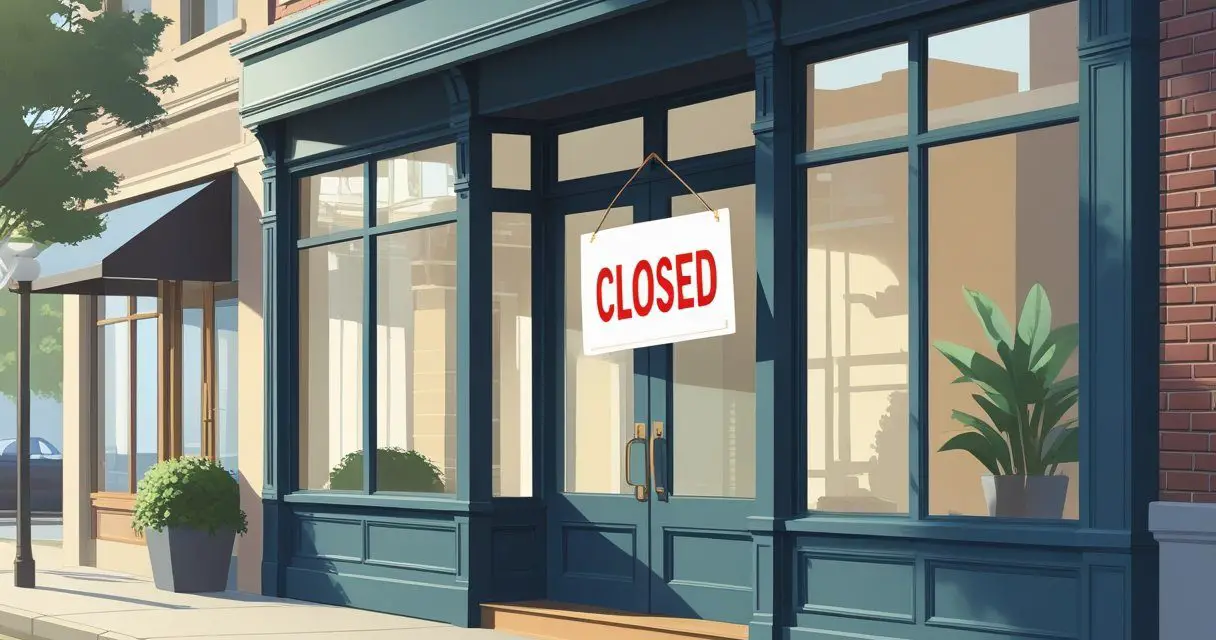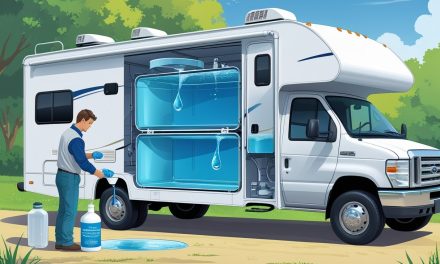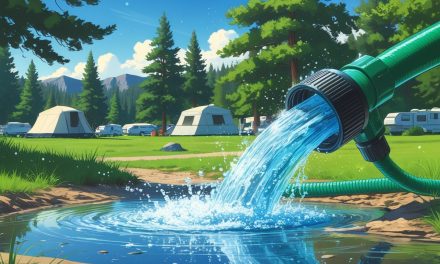Would you like to save this article?
You’ve probably heard whispers in the RV community about big changes coming to the industry. Well, the rumors were true, and one of the biggest names in RV retail has officially closed its doors for good.
Lazy Days RV, once a powerhouse in the recreational vehicle world, has ended its nearly 50-year run. This isn’t just another business closing – it’s the end of an era that started with just two travel trailers and $500 in assets. Here’s everything you need to know about what happened and what it means for your next RV purchase.
1. It All Started With Just $500 and Two Travel Trailers
Back in 1976, Herman Wallace and his sons Don and Ron started what would become one of America’s largest RV dealerships. Their entire inventory? Just two travel trailers. Their startup capital? A mere $500 in assets. It’s the kind of humble beginning that makes you believe in the American Dream.
The Tampa location became their flagship store, and for 35 years, they didn’t expand beyond that single location. Talk about playing it safe! You’d think with that kind of conservative approach, they’d be around forever, right?
| Year | Milestone | Details |
|---|---|---|
| 1976 | Founded | Started with 2 trailers and $500 |
| 1993 | Leadership Change | Don Wallace took over from Herman |
| 2011 | First Expansion | Finally expanded beyond Tampa |
| 2025 | Closure | 49-year history comes to an end |
You’d be amazed how a business can go from rags to riches and back again. The Wallace family probably never imagined their small Tampa operation would become a cautionary tale about rapid expansion in the RV industry.
2. They Were Selling 2023 Models at 39% Off in 2025
Here’s where things get really interesting – and a bit desperate. When the Endless RVing team checked Lazy Days’ website during their final days, they found 2023 model motorhomes still sitting on the lot. These weren’t just slightly discounted; they were marked down by a whopping 39%.
Think about that for a second – you’re essentially buying a three-year-old “new” RV. That’s like walking into a car dealership and finding 2022 models still being sold as new inventory. The math just doesn’t add up for any healthy business.
According to RV industry reports, total RV sales in 2024 were 356,518 units, down 6.9% from 2023. Used RV values have also dropped significantly, creating a perfect storm for dealerships holding excess inventory.
You know things are bad when a dealership is practically giving away inventory just to clear space. It’s like watching someone desperately trying to empty their garage before moving day – except this garage was worth millions of dollars.
3. The Acquisition Deal Was Worth Over $64 Million
Campers Inn RV stepped in to acquire the remaining assets, and the numbers are staggering. The total deal included $30 million for all assets excluding RV inventory, with the famous Tampa store alone accounting for $15.6 million of that purchase price. Add in the real estate at $34.9 million, and you’re looking at a deal worth more than $64 million.
But here’s the kicker – Campers Inn will only pay different percentages based on model years:
- 100% of invoice for 2026 models
- 90% for 2025 models
- 80% for 2024 models
- 85% of NADA wholesale value for 2023 and older models
Campers Inn RV, founded by Arthur and Frances Hirsch in the mid-1960s after a bad dealership experience, has been one of the fastest-growing RV dealership groups since 2018. They’ve acquired or built 19 additional locations in recent years and will expand to 48 dealership locations across 22 states.
You can almost hear the negotiators saying, “We’ll take your shiny new stuff at full price, but that old inventory? Yeah, we’re not paying full price for your mistakes.” Smart business move by Campers Inn, tough reality for Lazy Days.
4. Five Locations Will Continue Operating Under New Management
Not everything is doom and gloom. Campers Inn will take over locations in Tucson, Arizona; Johnstown, Colorado; Seffner, Florida; Knoxville, Tennessee; and St. George, Utah. They’re also acquiring the Wilmington, Ohio store, though they’re still deciding whether to keep it operational.
The remainder of the closing dates are set to begin November 13th, with everything finalized by the end of November 2025. So if you’ve been eyeing a particular Lazy Days location, you better act fast.
RV shipments in March 2025 were 37,348 units, up 15.8% from March 2024, showing the industry still has life. Towable RVs made up 91% of shipments, increasing 17.1%, while motorhomes were up 4.4%.
You’d think they’d just rebrand these locations overnight, but apparently, even closing a dealership empire takes careful planning. At least some employees will keep their jobs, and customers will still have places to service their RVs.
5. The RV Industry Is Having a Massive Reset
This closure isn’t happening in a vacuum. The RV industry experienced a 43.2% drop over three years, though it’s resetting from a still-strong base of 353,000 retail sales in 2024. The market is stabilizing, but it’s been a bumpy ride.
In May 2025, RV shipments dropped to 28,150 units, a 15.1% decrease from the 33,150 units shipped in May 2024. These numbers show the industry is still working through post-pandemic adjustments.
Forest River Inc., another major RV manufacturer, announced the closure of its California-based manufacturing facilities in Hemet and Rialto. This shows the challenges aren’t limited to just retail operations.
You’d better believe dealerships are sweating bullets right now, wondering if they’ll be next. The RV industry boom during COVID created unrealistic expectations, and now reality is setting in hard.
6. Customer Service Problems Accelerated Their Downfall
According to the Endless RVing team and various customer reports, Lazy Days’ reputation took a serious hit in recent years due to service issues. What was once considered a premier RV destination became known for disappointing customer experiences.
The Tampa location was legendary in the RV community – people would spend hundreds of hours walking the 150-acre complex with over 1,000 RVs on display. But growth without maintaining quality standards proved to be their undoing.
Customer satisfaction surveys across the RV industry show that service quality is increasingly important as buyers become more educated and selective. Poor service can quickly destroy decades of reputation building.
You can have the fanciest showroom and biggest inventory, but if you can’t take care of customers after the sale, you’re basically building a house of cards. Word travels fast in the tight-knit RV community, especially when it’s bad news.
7. This Could Be Just the Beginning
Industry experts suggest that more dealership consolidations and closures are likely. With RV sales described as “flat on its back” and the market heavily favoring buyers, smaller and poorly managed dealerships are vulnerable.
The “Great RV Reset” that industry analysts talk about isn’t just about inventory clearance – it’s about fundamental business model changes. Dealerships that can’t adapt to leaner operations and better customer service are getting left behind.
Statistical Surveys reports that the RV industry in August 2025 showed signs of stabilization with new unit sales down only 4.67% year-over-year, an improvement from 2024’s steep declines.
You might want to start researching which dealerships in your area are financially stable before making your next RV purchase. The last thing you want is to find out your service department has disappeared along with your warranty coverage.
What This Means for RV Buyers
The Lazy Days closure represents both challenges and opportunities. For buyers, it means potentially better deals as remaining dealerships compete harder for customers. For the industry, it’s a wake-up call about sustainable growth and customer service.
If you’re planning to buy an RV, now might be an excellent time to negotiate. Dealerships are motivated to move inventory, and financing options remain competitive.
SOURCES
- Endless RVing YouTube Channel – “Once Thriving, Now CLOSED — Major RV Dealership Shuts Down!”
- RV News – “Campers Inn Finalizes Lazydays Purchase Agreement”
- RV Lifestyle – “RV Sales Dropping In 2025: Inside The Industry’s Biggest Challenges”
- Bish’s RV – “March 2025 RV Sales Report: Final 2024 Numbers & Market Trends”
- RVIA Market Reports
- Statistical Surveys – “State of the RV Industry – May 2025”
- FundingUniverse – “History of Lazy Days RV Center, Inc.”
- RV Business – “Forest River Closes California Manufacturing Operations”
- Campers Inn RV – “About Us”
- RV Travel – “Campers Inn RV purchase of Lazydays’ dealerships will reshape industry”





